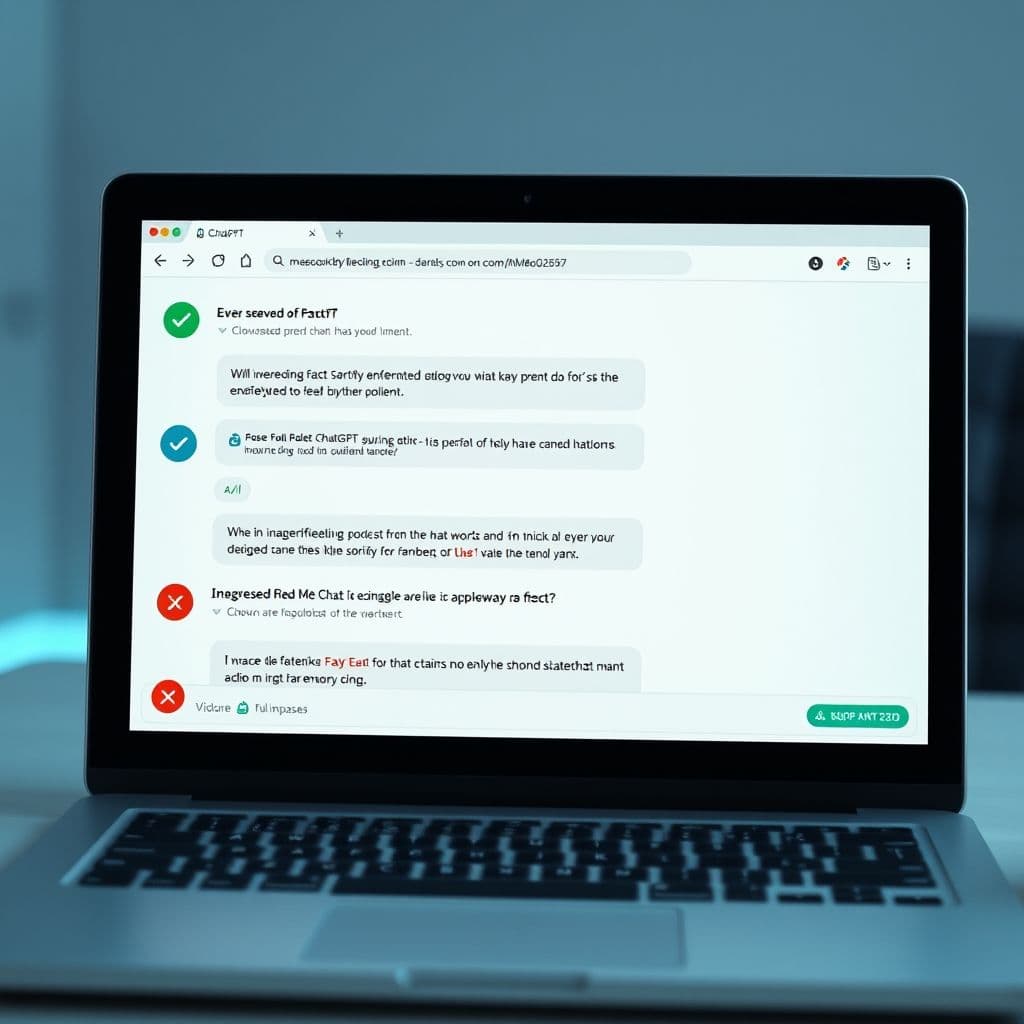The Frustration of AI Misinformation: A Potential SaaS Solution

Have you ever asked ChatGPT a simple question, only to receive a confidently incorrect answer? This growing frustration with AI misinformation is a real pain point for users who rely on these tools for accurate information. In this article, we explore the problem and propose a hypothetical SaaS solution that could revolutionize how we interact with AI.
The Problem: AI Misinformation and User Frustration
Users across platforms like TikTok and Reddit are increasingly vocal about their frustrations with ChatGPT and similar AI tools providing false or misleading information. The issue isn't just about getting wrong answers - it's about the AI's confident delivery of these inaccuracies, which erodes trust in the technology. Comments like 'Why do I pay $20/mo for something as clueless as I am?' highlight the emotional toll this takes on users who expected reliable assistance.
The problem manifests in several ways: AI tools guessing answers rather than admitting uncertainty, doubling down on incorrect information after being corrected, and sometimes even complimenting users while continuing to provide wrong responses. This behavior creates a perfect storm of frustration, especially when users are paying for premium services.

SaaS Solution: Real-Time AI Fact-Checking
Imagine a SaaS tool that operates alongside your AI interactions, verifying responses in real-time. This hypothetical solution would work as a browser extension or API integration that automatically fact-checks AI outputs against trusted databases and sources. When the AI provides information about historical facts, scientific data, or current events, the tool would instantly verify its accuracy and provide corrections when needed.
Key features could include: automatic source verification, confidence scoring for AI responses, visual indicators for verified information, and the ability to report persistent inaccuracies. The tool might use a combination of established fact-checking databases, academic sources, and real-time web verification to ensure comprehensive coverage.

Potential Use Cases and Benefits
Students researching for papers could use this tool to ensure their AI-assisted research contains accurate information. Journalists might employ it to verify facts gathered through AI interviews. Businesses could integrate the API to maintain accuracy in customer-facing AI chatbots. The benefits would extend beyond simple fact-checking - it could help rebuild trust in AI systems, reduce misinformation spread, and provide valuable feedback to AI developers about persistent accuracy issues.
Conclusion
While AI tools like ChatGPT offer incredible conversational abilities, their tendency toward confident misinformation remains a significant barrier to trust and usefulness. A dedicated fact-checking SaaS solution could bridge this gap, providing users with the confidence they need to rely on AI-generated information. As AI continues to evolve, tools that enhance its reliability rather than just its capabilities may become increasingly valuable.
Frequently Asked Questions
- How difficult would it be to develop an AI fact-checking SaaS?
- The technical challenges would be significant, requiring integration with multiple verification sources and real-time processing capabilities. However, existing fact-checking APIs and natural language processing technologies could provide a foundation for development.
- Could this solution work for all types of AI-generated content?
- While ideal for factual information, creative or subjective content would present challenges. The tool would likely focus on verifiable facts rather than opinions or artistic creations.
- Would AI companies implement this kind of verification themselves?
- While possible, there may be value in an independent verification system that works across multiple AI platforms, providing unbiased accuracy assessments.


